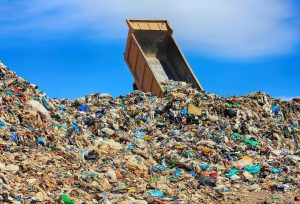Climate Action


Home » Climate Action » SDG 13 – Climate Action Crossroads
SDG 13 – Climate Action Crossroads
Particularly when it comes to the climate crisis, nothing – besides action itself – is more important than honest self-criticism by official bodies themselves.
Israel definitely excels in this. So we weren’t at all surprised by the Environmental Protection Ministry’s new status report on implementation of the country’s emissions commitments (through the end of 2021). In a nutshell: Israel is on its way to just a 12% cut by 2030, far below its 27% promise to the UN. It also expects that only 19% of energy will be produced from renewables – not the 30% it has targeted.
Of course, the Government could act quickly to rectify the situation. Unfortunately, internal bickering has so far dashed that hope by forcing the ministerial legislation committee to defer planned discussions on advancing the much-anticipated climate bill (which did not make it all the way through the legislative process in the previous Government).


Meanwhile, the State Comptroller’s new report covering 2013-21 is scathing with regard to climate action in Israel. The document makes clear that enforcement against violations is grossly deficient, increasing pollution-related risks to health as well as costing the economy billions of shekels.
Of course, nothing like a retired senior official to really hang out the dirty laundry. In a recent interview to “Haaretz,” immediate-past Environmental Protection Ministry Director General (and one of our long-time Changemakers) pinned obstruction of climate action efforts squarely on the Finance Ministry – and warned: “The periphery in Israel will suffer most from the climate crisis. The citizens in the weaker local governments will pay the price.”
Any reasons for guarded optimism?
Certainly there are. A few examples: progress is being made on the Energy Ministry’s plan to construct the country’s first large-scale energy storage facility; official statistics indicate (Hebrew) that between 2021-2022 the number of electric cars on Israeli roads jumped by 179% (and hybrid cars rose by 21%); after years of inaction, work has finally started (Hebrew) to clean up severely polluted groundwater in the Tel Aviv area; the Water Authority has just released (Hebrew) a plan according to which treated, recycled wastewater from the country’s center will be transported to the south for agricultural purposes; underwater sponge gardens along the coast will now enjoy (Hebrew) official protection in accordance with environmental law; and Israeli researchers have reportedly created a drought-resistant tomato.
All encouraging. As Israel’s senior officials are clearly aware, however, the country has reached the crossroads and must quickly beef up climate action efforts – before it’s too late.
Related articles


SDG 13 -Battle vs Climate Crisis Already Lost?
Climate Action In our previous post about the climate crisis we highlighted the UN Secretary General’s warning that humanity is moving toward “collective suicide.” Since


SDG 13 -Upgrading Environmental Protection
Climate Action When it comes to effective sustainability, collaboration between Israel’s public, private and civil society sectors is fundamental to long-term success. This axiom is


SDG 13 – Climate Action & the Budget
Climate Action We cannot think of a better place to decipher the climate action intentions of Israel’s new Government than its current 2023-24 budget deliberations.


















